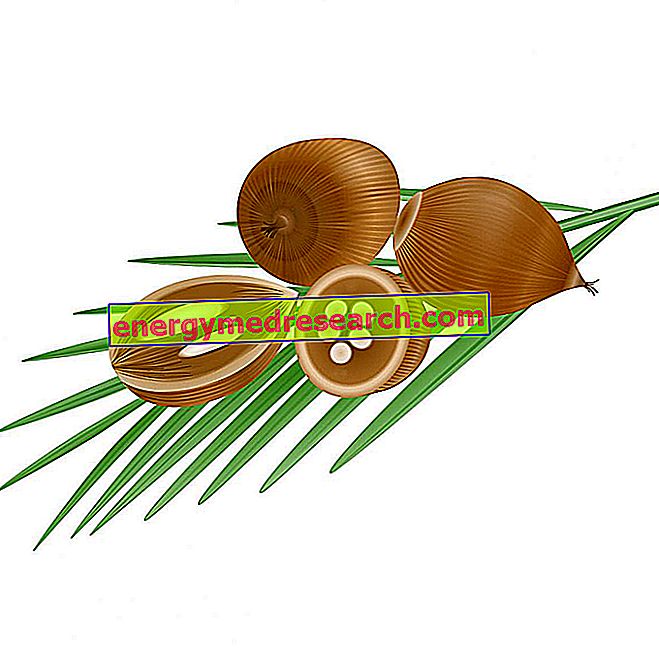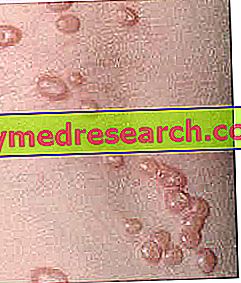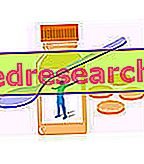Heartburn (heartburn) is a symptom caused by suffering from the gastric mucosa.

Under normal conditions, the internal surface of the organ is protected by the mucus, which hinders the corrosive action of the hydrochloric acid produced by the stomach with digestive and antiseptic purposes.
Heartburn is caused by the contact of gastric acid with the mucus-free surface; this may be due to an excess of gastric juices or a lack of protective mucus.
Heartburn often correlates with various morbid conditions such as:
- Hiatal hernia.
- Gastroesophageal reflux disease.
- Gastritis.
- Gastric or duodenal ulcer.
The most common causes are:
- Helicobacter pylori infection.
- Emotional factors.
- Bad diet and harmful foods.
- Alcohol abuse.
- Cigarette smoke etc.
What to do
- When heartburn is not justifiable by dietary or emotional factors, it becomes necessary to consult the doctor.
- If gastric acidity persists, it is necessary to undertake a diagnostic path to identify the causative agent; this path almost always includes:
- Gastroscopy.
- Sometimes the biopsy.
- Search for Helicobacter pylori:
- Blood analysis.
- Breath test.
- Stool examination.
- Choose treatment / therapy based on the specific cause:
- Emotional factors: reduce general stress and learn to manage anxiety or irritability. If possible, organize work shifts better. Anxiolytic drugs prescribed by the doctor may be useful.
- Advanced age and insufficient mucus secretion: this discomfort can be sustained by the use of some drugs (prescribed by the doctor) and by the meticulous organization of the diet.
- Tobacco, alcoholism, excess of nervine drinks and irritating spices: stop smoking, drinking alcohol, coffee or energy drinks and eating spicy foods.
- Drugs: replace the drugs responsible for heartburn (NSAIDs, antibiotics, etc.) or associate them with a gastroprotector (all prescribed by your doctor).
- Excess of poorly digestible foods: significant reduction of the foods in question and choice of more suitable cooking techniques.
- Full-blown gastritis of food origin: follow a specific diet and, when necessary, temporarily take medications (prescribed by your doctor). Always chew slowly. Avoid over-eating meals. Divide the diet into at least 5-6 meals a day.
- Behavioral factors and others that affect digestibility: avoid clothing that is too tight on the belt, go to bed immediately after eating, etc.
- Neoplasms: surgery.
What NOT to do
- Ignore gastric heartburn.
- Postpone or avoid the diagnostic path.
- Lead a stressful life (excessive work shifts, family commitments, etc.)
- To smoke.
- Drink alcohol (especially on an empty stomach).
- Consume lots of coffee or energy drinks (especially on an empty stomach).
- Make constant and massive use of irritating spices.
- Take drugs lightly, on an empty stomach or without gastro-protector.
- Eat abundant meals.
- Consume many indigestible foods and distribute the diet incorrectly (see below).
- Eat quickly chewing little.
- Fast.
- Dress with very tight clothes on the belt.
- Go to bed immediately after eating.
What to eat
- Preferably fresh foods, avoiding those preserved by methods other than refrigeration or freezing.
- Lean foods and meals: they digest better. In general they are more suitable: fresh vegetables, not too acid fruits, cereals and derivatives, legumes, lean meats and fish, low-fat cheeses, egg whites, etc.
- Foods of animal origin with little connective tissue: white or red meats but properly cleaned and trimmed during preparation.
- Medium-cooked protein foods: they should not be "bloody" but not overcooked.
- Foods and meals with the right amount of fiber: among the products of vegetable origin, boiled (not overcooked) legumes and whole grains (in moderate portions), raw leaf vegetables, fruits with digestible peel, etc. are suitable. The portion must always be adequate.
- Small portions of liquid foods (especially milk and yogurt, preferably skimmed).
- Salt-free foods and meals: salt damages the mucous membrane of the stomach and increases gastric secretion.
- Warm or room temperature foods.
The most suitable cooking methods are those of average duration:
- Drowning / boiling in hot water.
- Vacuum packed.
- Vasocottura.
- Boiling in a pressure cooker.
- Baked in a paper oven.
- Sweet cooking in a pan with few or no fat.
What NOT to Eat
- Foods and meals high in fat: slow down digestion and increase the time the stomach stays. The consumption of fatty meats and fish, fatty cheeses (especially those fermented like gorgonzola and pecorino), sausages, preserved in oil, excessive condiments, fried foods, etc. must be limited.
- All junk food, especially fast food: french fries, hamburgers, hot dogs, croquettes etc.
- Foods and meals rich in connective tissue: molluscs, broth cuts, some offal, etc.
- Raw protein-based foods and meals: meat or fish carpaccio, tartare, sushi etc.
- Proteic based foods and meals: stew, braised meat, fish soups, omelette eggs, etc.
- Foods and meals rich in fiber, especially insoluble, or with indigestible fibers: legume soups, bran, peppers, aubergines, etc.
- Large portions of liquid foods: dilute the action of gastric juices, relax the stomach and cause a "rebound" effect on acidity.
- Significant portions of milk and yogurt: they are potentially indigestible foods, both for their richness in water and for their abundance in proteins and fats.
- Foods and meals rich in salt: salted, pickled, salted and cheeses are limited.
- Alcoholic beverages: wine, beer, spirits.
- Nerve drinks: coffee, too much tea, energy drink.
- Carbonated and acid drinks: cola, oranges etc.
- Foods that are too cold (especially on an empty stomach): ice cream, frozen drinks, etc.
- Food that is too hot (especially on an empty stomach): broths, fried foods, grilled meat, etc.
- Potentially stinging spices: red pepper, pepper, ginger, horseradish, red onion etc.
Natural Cures and Remedies
Cures and natural remedies for heartburn are mainly used to optimize digestibility. It is:
- Mucilage.
- Aloe.
- Mint.
- Greater gentian.
- Artichoke.
- Dandelion.
- Absinthe.
- Blessed thistle.
- Cumin.
- Fennel.
- Rhubarb.
The only product that appears to have an inhibiting and direct effect on heartburn is licorice. They are also used:
- Chamomile.
- Raspberry leaves.
- Mint.
- Carrot.
For those suffering from psychosomatic heartburn, natural remedies are also considered:
- Advanced relaxation techniques.
- Mental training.
- Relaxing activities like yoga.
- Psychotherapy.
Pharmacological care
The pharmacological treatments for heartburn are divided into categories:
- Antacids: increase the pH of the stomach reducing acidity.
- Sodium bicarbonate: for example Citrosodina®. Contraindicated in case of hypertension.
- Calcium carbonate: for example Cacit, Metocal and Recal. Contraindicated in case of constipation.
- Magnesium hydroxide: Contraindicated in case of diarrhea.
- Aluminum hydroxide: for example Maalox®. Contraindicated in case of constipation.
- Proton pump inhibitors: block gastric acid secretion.
- Lansoprazole: for example Pergastid, Lomevel and Lansox.
- Omeprazole: for example Antra and Nansen.
- Histamine H2 receptor antagonists: they are antisecretives that reduce the production of hydrochloric acid:
- Nizatidine: for example Nizax, Cronizat and Zaniza.
- Ranitidine: eg Zantac and Ranibloc.
- Cimetidine: for example Ulis, Biomag and Tagamet.
- Famotidine: eg Famotidine EG and Myliconacid.
- Prokinetics: speed up the emptying of the stomach (therefore digestion):
- Clebopride.
- Domperidone.
- Metoclopramide.
- Erythromycin.
- Levosulpiride.
- Specific antibiotics: they are used only in case of chronic and symptomatic infection with Helicobacter pylori. They are not always decisive.
- Anxiolytics: they have a calming action and hinder psychosomatic hyperacidity. The choice is at the discretion of the doctor but generally it is benzodiazepines.
Prevention
Prevention of heartburn is strongly related to the underlying disease, which is the underlying cause. Some universally useful tips are:
- Reduce or cure nervous stress.
- Follow a suitable diet.
- Avoid fasting.
- Abolish alcohol and cigarettes.
- Reduce to the minimum indispensable drugs and / or supplements that can harm.
Medical Treatments
Medical treatments for heartburn are specific based on the cause; some are:
- Surgery: it is essential in case of neoplasias and sometimes of ulcers.
- Removal of implants such as the balloon or gastric banding: necessary for the slimming of large obese particularly at risk, sometimes triggering such strong symptoms (including heartburn) that they must be removed.



